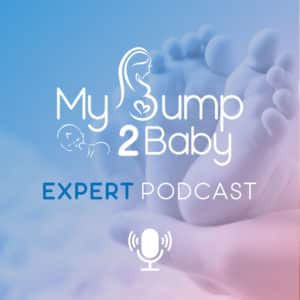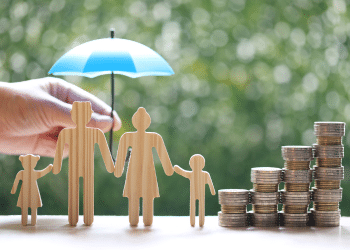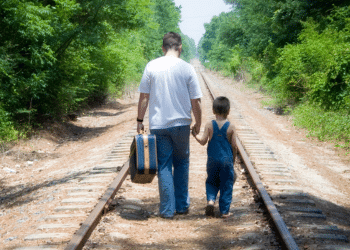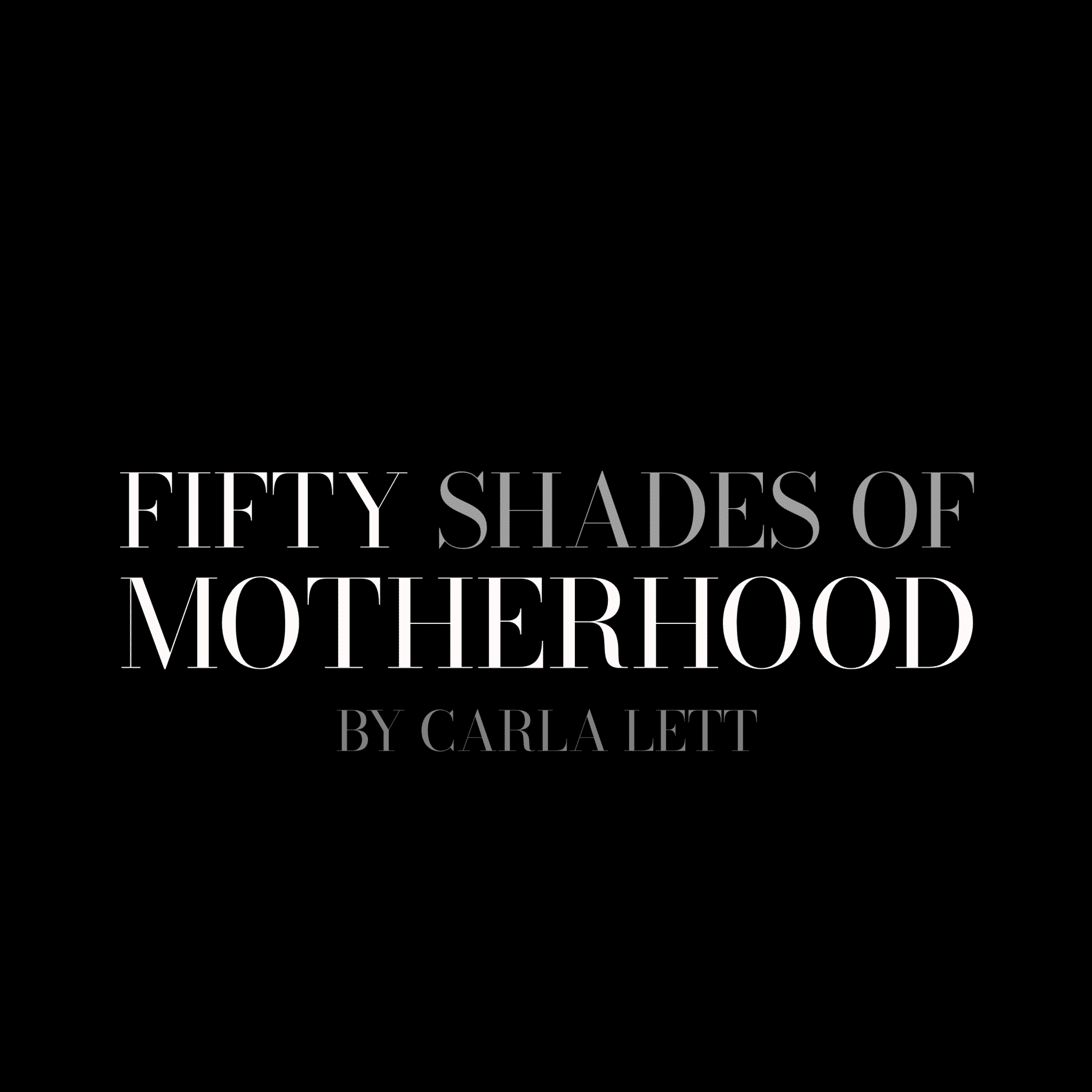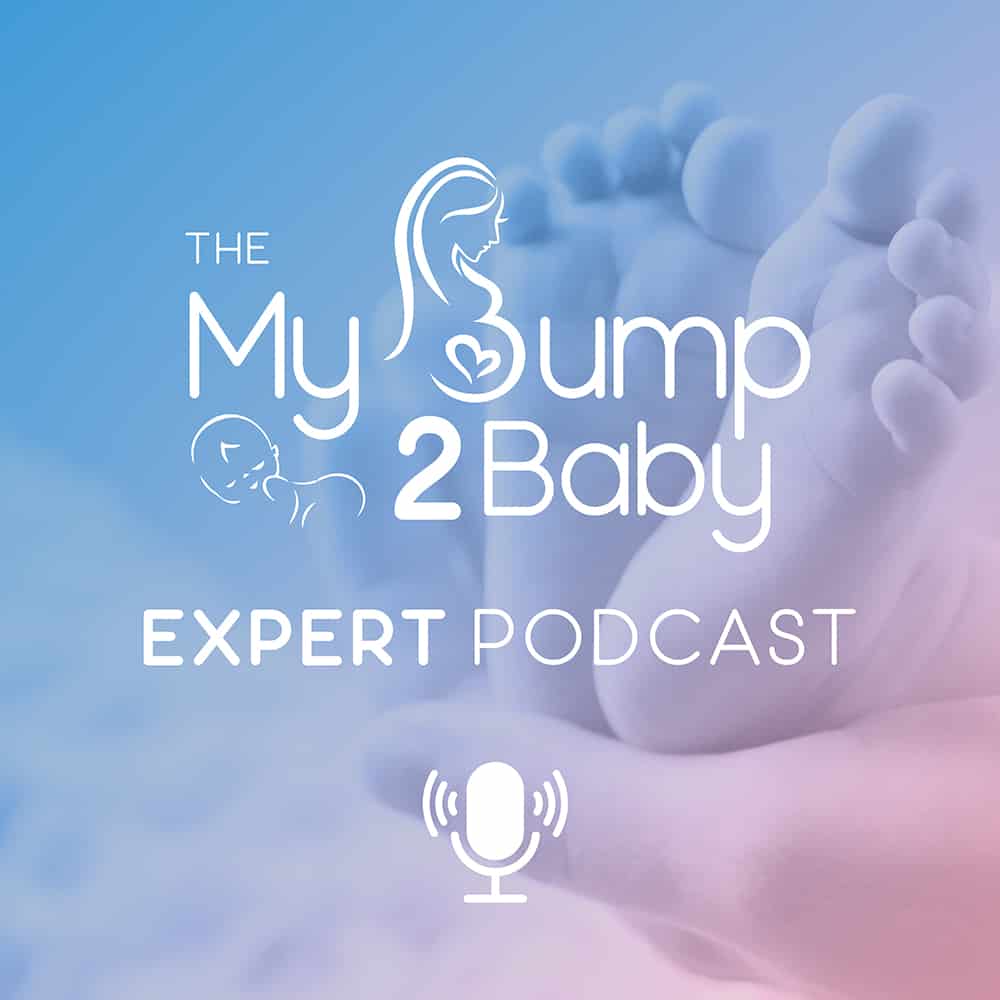- Tokophobia – Fear of Childbirth
Today Carla is joined by the founder of easibirthing®, Sharon Mustard. In today’s episode Sharon covers everything you need to know about tokophobia and answers the questions;
What is Tokophobia?
How do you know if you have Tokophobia?
How common is Tokophobia?
Is it normal to be scared of childbirth?
Why it is important to seek help if you have Tokophobia?
What causes it and how to overcome your fear of giving birth.
Sharon also wrote an article for us on the subject if you would like more information. https://www.mybump2baby.com/tokophobia-fear-of-childbirth/
Please find Easibirthing’s links below
Practice website (including information about virtual and face-to-face hypnosis, hypnobirthing and psychotherapy sessions): http://www.easibirthing.com/
Email: [email protected]
yFacebook: https://www.facebook.com/easibirthing
Online Training School (with courses ranging from 1-21 hours for parents, expectant parents and therapists): http://school.easibirthing.com
Carla: This podcast is sponsored by My Bump 2 Baby family protection and legal directory. To find your nearest advisor or family law, solicitor, head over to www.mybump2baby.com/familyprotectionlegal
[00:00:21] Do you love the idea of being your own boss? What about saving money on childcare? Because you can actually work flexibly around your family.
[00:00:33] My Bump 2 Baby is rapidly expanding, and we are looking for people to run their own pregnancy to preschool hubs in their local area. Full training is provided, ongoing mentor support, fantastic regular team incentives. A bonus scheme, uncapped commission, review products for free and review days out too.
[00:01:02] If you are interested in being the, My Bump 2 Baby manager for your local area, email us [email protected] .Limited space available.
[00:01:28] Hello and welcome to My Bump 2 Baby Expert Podcast, where we bring experts from all over the UK to answer your questions on everything, pregnancy to preschool. Today we are speaking to Sharon Mustard from Easibirthing, all about Tokophobia, the fear of childbirth. I hope you enjoy this episode.
[00:02:09] Hello everybody and welcome to My Bump 2 Babies expert podcast. Today, we are joined by Sharon Mustard, the founder and director of Easibirthing and parenting. Hi Sharon, how are you?
[00:02:25] Sharon: All good. Thank you very much. The sun shining. That’s all we need.
[00:02:28] Carla: Absolutely. Um, so Sharon, for our audience today, we’re going to be talking about Tokophobia, but would you like to start by just introducing yourself and what you do?
[00:02:38] Sharon: Of course, that’s fine. Well, as you’ve said, I’m the founder and director of Easibirthing and Parenting. Now we, um, within Easibirthing and parenting, we provide an online training school. But, uh, for 25 years as a hypnotherapist and psychotherapist, I’ve been passionate about supporting women and their partners.
[00:03:01] And so, uh, one of the most important parts of my work, in fact, the most important is actually working with women with birth partners, with women and men towards fertility, during pregnancy, during childbirth, and also in support during the postnatal period with regards to really restoring their mental health, if they are struggling. Uh, but also helping them to maintain that. And also helping with parenting relationships because this new is a new experience. Even if we’ve had a child before it’s a new experience. And so many women and men do need extra support during that. But I also train counsellors therapists and related professionals across the world, uh, to actually work in the specialist areas.
[00:03:52] Um, so as well as being the specialist in the areas. I also have a general practice in Salisbury in the UK. And within that, I see people for all aspects of emotional and mental health.
[00:04:09] Carla: Excellent. That is brilliant Sharon, you sound like a good friend to have anyway. You cover a lot there, so today we’re going to be talking about Tokophobia aren’t we. Um, so I’m looking forward to finding out more about this, because I think a lot of people are scared of childbirth and they just think they’re scared of childbirth and, and they didn’t realize that they don’t realize there’s actually a phobia and a name for it. So can you tell us a bit more about what Tokophobia actually is?
[00:04:39] Sharon: Yeah, absolutely. Well, one of the most important points to make is that Tokophobia, is the extreme end anxiety, but in this case, it’s a pathological dread and in many, many cases a complete avoidance, uh, both of pregnancy and of childbirth. So it can happen with someone who’s already pregnant. Um, or someone who is avoiding and we can talk a little bit more about that um, actually becoming pregnant in the first place. And it’s a condition that is incredibly distressing when we get to the pathological dread that is Tokophobia. Um, it is fears of childbirth that is extremely debilitating in someone’s life. And often we find that it’s associated with most commonly things like depression, um, post-traumatic stress disorder, um, uh, and, uh, other anxiety disorders like GAD, you may have heard of generalised anxiety disorder.
[00:05:43] Carla: Yeah. There’s a lot. There’s a lot there isn’t there? So, um, yeah, I can understand that. In fact, when we shared your brilliant article that you wrote for us, the feed back was a lot of people didn’t actually realize it existed. And to be honest with you, I didn’t. So it’s really interesting. Um, so how would someone know if they have Tokophobia or if they’re just scared of birth. Cause I don’t think anyone actually looks forward to that bit really?
[00:06:09] Sharon: No. Absolutely. And, and you were absolutely quite right that, uh, it is, um, uh, something that is quite common to have some fears because this is, um, a situation in our lives, whether this is our first baby that we’re expecting or planning, um, with, with our partner. That this is something that is unfamiliar. Um, to us, it is a new experience. And with any novel experiences, it is understandable to have some doubts and trepidations. What I don’t want to do and I think it’s really important to do is even if someone isn’t suffering from, uh, Tokophobia from that extreme end. That we’re belittling their fears were not at all because very often a lot of those fears, even if it’s not Tokophobia by definition, um, are really, really important to address. And we’ll hopefully be talking later in the call about some ways of, um, actually addressing that. Um, but Tokophobia itself being that extreme end it is the, not just the intensity of the fear, but it’s also how debilitating this can be in our lives. So if, um, uh, someone has that extreme fear, um, they may be suffering nightmares such as those seen within post-traumatic stress disorder or just post-traumatic symptoms. It could be that they’re having difficulty actually focusing on anything really, avoiding people and avoiding their usual support network, friends or family, um, including their partner. Um, it can affect all their children that we have, if we have children already. Panic attacks, really extreme anxiety that um, means that we have intrusive thoughts that are so obsessive and all consuming, that they stop us being able to just get on with the normal functioning of life or the things that we want to do.
[00:08:16] We can, if pregnant uh, uh, already can mean a complete avoidance of any information about pregnancy, including not attending antenatal appointments, um, just an avoidance. And that is the kind of denial that we normally see in any situation in life where we are so frightened or so anxious, that it becomes easier to avoid. Um, and that denial is something that’s sometimes we even convince ourselves that. Nope. Nope. It’s not only is it not happening, but we don’t even want to go there, but we may have a future desire about becoming a parent.
[00:08:59] Carla: Yeah. Goodness. Yeah. It’s an awful thing to go through. Um, all of that. Yeah. So how common is it then to have that? I mean, is it very rare?
[00:09:10] Sharon: Uh, it, it is certainly more rare than having fears about childbirth in themselves. Um, um, but in Tokophobia, there, there are many, many studies out there. And in fact, what there seems to be a correlation on is that we’re talking about at least one in six women. If not more, it is most common in women who are already pregnant. Um, not, not surprisingly, I suppose, in a way, but particularly women who are pregnant, who haven’t had a baby before. And I think that’s quite important, uh, to think about because we often think of if a woman’s pregnant, it will be a previous childbirth experience that she’s most likely to be afraid of. And our statistics do not back that up, um, up to about 20% of pregnant women, um, report extreme fear, um, uh, 6% describe it as so disabling that they just feel they cannot go forward, um, with this. Uh, with women who aren’t pregnant or perhaps have never been pregnant, um, about 13%. So, like I say one in six, um, um, but we would certainly say a lot more.
[00:10:31] What I must also say here is that there is a rising body of research that is showing and this I would say is the same within my experience within my professional practice is men suffering from Tokophobia. Now it’s most common in men when they have actually experienced a birth before that has been traumatic. It’s important at this point to say that men can suffer from Tokophobia as, as well, but certainly with women, at least one in six,
[00:11:05] Carla: Wow. Goodness. I never knew that. Yeah. With men, I suppose, when you think of fear of childbirth, you think of the woman, well I did, so yeah, that, that is really interesting and definitely something too that is important to raise awareness about. So thanks. Thanks for adding that in there. So we’ve covered that it is normal to be scared of childbirth, but what, what actually causes, um, Tokophobia then?
[00:11:31] Sharon: Okay. So, um, very often, so let’s, let’s kind of split it into three main areas or categories, if you like. Very often in adolescents from, uh, videos that they were shown as a teenager or just the, the, um, sexual education that’s provided at schools, sadly, even the contemporary education that’s provided today. Now um, it may not just be videos. It may be the precarious learning as we call it from other people. So learning about other people talking about stories that frightened us, even it could be as a child over hearing a mum or, um, another female adult talking about difficulties within childbirth. Um, and as humans, we will tend to uh, hone in on that we have a negativity bias, um, that, uh, means that if there’s something that we think, Whoa, that’s potentially something to be afraid of, then we will hone in on that. Information. Um, often at the exclusion of the positive stuff. Yeah. Um, we find that that is the main cause in women who aren’t pregnant as well as women who already are, it may be that the cause is birth trauma, um, from a previous birth. And if I could just elaborate on that in this particular point in the interview that we are talking about not necessarily something having gone very wrong, but it could also be a normal obstetric delivery where women, and men of course, have been subject to feeling that they have been, um, out of control that perhaps the control has being taken away from maybe insensitive, um, medical professional. It may be someone that just hasn’t taken their decisions and their choices completely into being. It may be that they feel that, um, uh, other people are delivering their baby or suggesting that somehow that they are, um, inadequate or that they’re being silly. So all together, it could be a negative experience of childbirth and a really, really useful, um, way of thinking about what makes any event traumatic, um, is. Uh, simply where we feel that something, um, the, the threat or the perceived threat of something is greater than our perceived ability to cope. Now perceived a really important word there, because it may be that we do have the ability to cope, but we don’t believe that we do.
[00:14:22] Now the third group that I want to say is men who have been really concerned by the welfare of their partner or also of, of their baby. And again, when I’m talking about men here, let’s not forget, um, same-sex couples as well, but it’s a birth partner who really feels that they have witnessed real fear about, um, the welfare of their partner of their baby. And of course, women who have had stillbirth, uh, uh, miscarriage, difficult pregnancy, um, um, before may well have, uh, that as the cause of the source.
[00:15:04] Carla: Hmm, that makes sense. And, and with that within your article, you mentioned that that can actually contribute to secondary infertility, can’t it?
[00:15:13] Sharon: Most definitely. Most definitely. So that may manifest in, uh, first of all. A conscious choice or a seemingly conscious choice not to have children. Sometimes it affects our decision and we might even convince ourselves that no, we don’t want to have more children, or we don’t want to have children in the first place, but subconsciously, even if we do have a strong desire, um, to have children. We’re planning, hopefully to conceive either with natural inception or with assisted fertility. Um, there is a huge body of insight there to show that the subconscious blocks in the way could be Tokophobia, um, or, uh, fears about childbirth, the process itself and of pregnancy. And actually it’s worth remembering, um, as well that a fear of pregnancy or of childbirth can be that, that feeling of being retraumatised by, uh, even a previous medical experience, that’s not connected to a previous childbirth, um, or it may be, uh, sexual abuse or, or rape and a feeling of distress and helplessness being repeated um, within that experience.
[00:16:34] Carla: Yeah, that, that makes a lot of sense. Um, that, so that thank you for that. So why would you say then? I mean, it’s quite clear to me, but why would you say that it’s important to seek help for this? If you’re not pregnant then?
[00:16:49] Sharon: Well, if this is an untreated, um, profound fear, what it can affect is our choices on our decisions in life. Um, As I said it could affect, um, our decision to want to have children either consciously or subconsciously. Could affect our fertility, as we say but also that if you, um, don’t seek help, it could even affect your relationships. So avoiding relationships where conception might be possible either, um, accidentally or, um, because of the, just the sheer possibility of that. Could be an avoidance of relationships um, altogether, certainly of relationships with men, for example, who we know want biological children of their own. Um, that may be an absolute no-no even to enter into that relationship. But often it can create a shame about our perceived inadequacy of feeling that we should want to have children that we should want to do this, that we shouldn’t be afraid. Um, and this loss actually, uh, has been shown, can be grieved well into old age. So beyond our fertile period in life, as as humans. Um, so that low sense of self worth can actually affect us all the way through our lives, if it is untreated.
[00:18:23] Carla: Wow. Goodness. Yeah, that so sad to go on that long, but, um, so how would someone then overcome or counteract their fear of giving birth?
[00:18:36] Sharon: Okay. So it is important whether you’re pregnant, whether you’re not, whether you’ve had a child before, whether you’re not, to not allow those fears control you and your decisions and in the case of Tokophobia to not disable your life to a huge extent. So if we’re looking after ourselves, our mental health, as well as our choices and decisions are many things that we can do both reactively and preventively. So first of all, very, um, simple making, like an obvious one would be attending a hypnobirthing course, now there are a lot more available. Um, both virtually online as well as in a local area. Um, uh, across the world, really not just in the UK to, um, effectively help you either to deal with any fears and doubts that you may have to empower you to have the strategies and the tools, um, to be able to use during childbirth, especially.
[00:19:38] Um, if things don’t go according to plan that we actually feel that that doesn’t mean we can’t have a positive experience and that we are not overall in control of our decisions, our choices, our reactions, because we are, and we can be, but anxiety tells us that we’re not. So attending a hypnobirthing course can also be a preventative way. And if you think actually I feel fine about childbirth. Um, I’m not afraid. Um, that is fine, but it can still give us the ability to deal with whatever those eventualities might be. If you do have significant fears or are Tokophobic at that extreme end. Um, it is so important that you are listened to and heard, that your fear is witnessed. And I would say witnessed a by someone who’s objective i.e. nOt your partner, even though they may be a very good listener. Um, if your fears are extreme, you do need, um, to, uh, consult, I would say a professional, like a psychotherapist so that you’re not suffering in silence. And you also don’t feel alone. You feel that someone is, um, there to allow you to express your fears. It doesn’t have to be a taboo subject. Um, we know that, uh, allowing someone to have that fear of control have been able to do that, allows them, them with support, to be able to make the decisions that are right for them and potentially for their family as well.
[00:21:16] Carla: That makes a lot of sense. That’s so, Sharon, thank you so much for all that information. It’s been really, really informative. So thank you. Can you, um, tell people where people can find you because obviously your available online as well aren’t you?
[00:21:31] Sharon: I am. Indeed. I am indeed. So, uh, we have, and in fact, the most popular, uh, way nowadays is to, um, uh, interact with our online school. That certainly would be a good place to start. Even if you do decide, um, to see me or another psychotherapist one-to-one, um, would be, uh, at our online school, they’re all prerecorded, um, courses. But you do have the interaction with me as your course tutor on those. So that is school.easibirthing.com and it will have all of the courses up there, both for parents and for therapists.
[00:22:14] Um, you can also access our main website, which also has all the details about our one to one live options if you were. Uh, if you like, um, there that’s virtually through things like zoom or Skype, um, or whether it is actually coming to see me at my general practice. Um, and that is, uh, easibirthing.com. Um, so that is our main website that has all the information, not just of the online school. And links through to that. But also of the psychotherapy and hypnotherapy sessions, um, that we provide, uh, live also. People can email me as well at [email protected] or our Facebook page, which is @easibirthing. That’s the one for parents and expected parents.
[00:23:09] Carla: That’s brilliant. And we’ll put all those links in the show notes as well. So Sharon, thank you so much for being our guest today, our expert. Um, and, um, thank you very much.
[00:23:21] Sharon: Lovely. Thank you very much, Carla. That that’s great. Great to speak to you.
[00:23:27] Carla: Thank you for listening to My Bump 2 Babies Expert podcast. If you would like to find help and support from experts in your local area, head over to www.mybump2baby.com and you will also be able to find local pregnancy to preschool groups, classes, businesses, and services in your local area.

